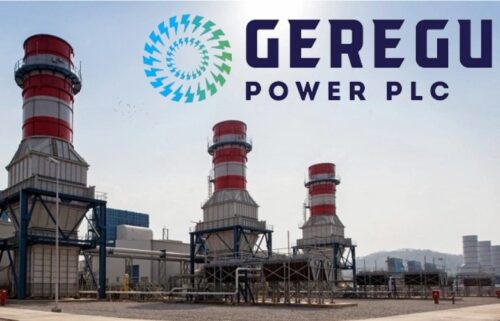
Nigeria’s electricity generation companies are grappling with a surge in unpaid debts that has never happened before, with Geregu Power Plc and Transcorp Power recording a combined N420 billion in outstanding receivables—the highest on record as of 2024.
According to their 2024 annual financial statements, Transcorp Power is owed N298.4 billion, while Geregu Power has N121.8 billion in unpaid bills from customers. This marks a staggering increase from N193.3 billion in trade receivables recorded in 2023, with Transcorp Power accounting for N145.2 billion of that figure.
Despite these mounting debts, both companies reported substantial revenue growth, collectively posting N443 billion in 2024, nearly doubling the N225 billion revenue from 2023. However, the cash flow situation tells a different story.
In 2023, cash sales made up 69% of total revenue (N154.7 billion out of N225 billion). However, by 2024, cash sales rose to N193.6 billion but accounted for only 44% of total revenue, indicating a heavier reliance on credit transactions.
Although both companies achieved higher net profits, their ability to generate immediate cash from operations has weakened, putting pressure on financial stability.
In 2024, Geregu and Transcorp Power posted a combined gross profit margin of 46%, down from 52% in 2023. However, net profit margins improved, rising from 21% in 2023 to 24% in 2024, with Transcorp Power recording N80 billion in net profit and Geregu Power posting N27.4 billion in net profit.
Despite this, both companies are facing serious liquidity constraints due to declining cash reserves.
A key indicator of liquidity—the cash ratio, which measures a company’s ability to cover short-term obligations—has declined for both power firms.
Transcorp Power’s cash ratio dropped from 0.05 in 2023 to 0.036 in 2024, signaling severe liquidity strain while Geregu Power’s cash ratio fell from 0.99 in 2023 to 0.26 in 2024, still within a manageable range but significantly lower than the previous year.
Geregu Power has been reinvesting its cash reserves, notably spending N41.3 billion in 2024 to develop a new turbine plant, contributing to the drop in its cash ratio.

Both companies have accumulated massive debts to suppliers, particularly gas providers. Transcorp Power’s trade payables surged to N172.4 billion in 2024, up from N98.8 billion in 2023, largely due to an additional N73.6 billion owed to gas suppliers. Geregu Power’s supplier debts reached N98.1 billion, with N80.9 billion owed to gas suppliers, reflecting a 73% increase from N46.7 billion in 2023.
While the partial removal of electricity subsidies in early 2024 increased revenue for power generation and distribution companies, liquidity challenges persist across the industry.
Distribution companies (DisCos) remain unable to get enough meters for customers due to financial constraints. This cash flow bottleneck is cascading down to generation companies (GenCos) like Geregu and Transcorp, further deepening the sector’s liquidity crisis.
For Transcorp Power, rising debts and dwindling cash reserves pose serious financial risks. Meanwhile, Geregu Power, though in a better position, must manage its investments wisely to maintain stability.
As both companies navigate these turbulent waters, cash flow management and debt reduction will be crucial for long-term sustainability. The industry must now focus on strategic reforms to address growing liabilities and ensure financial health.


